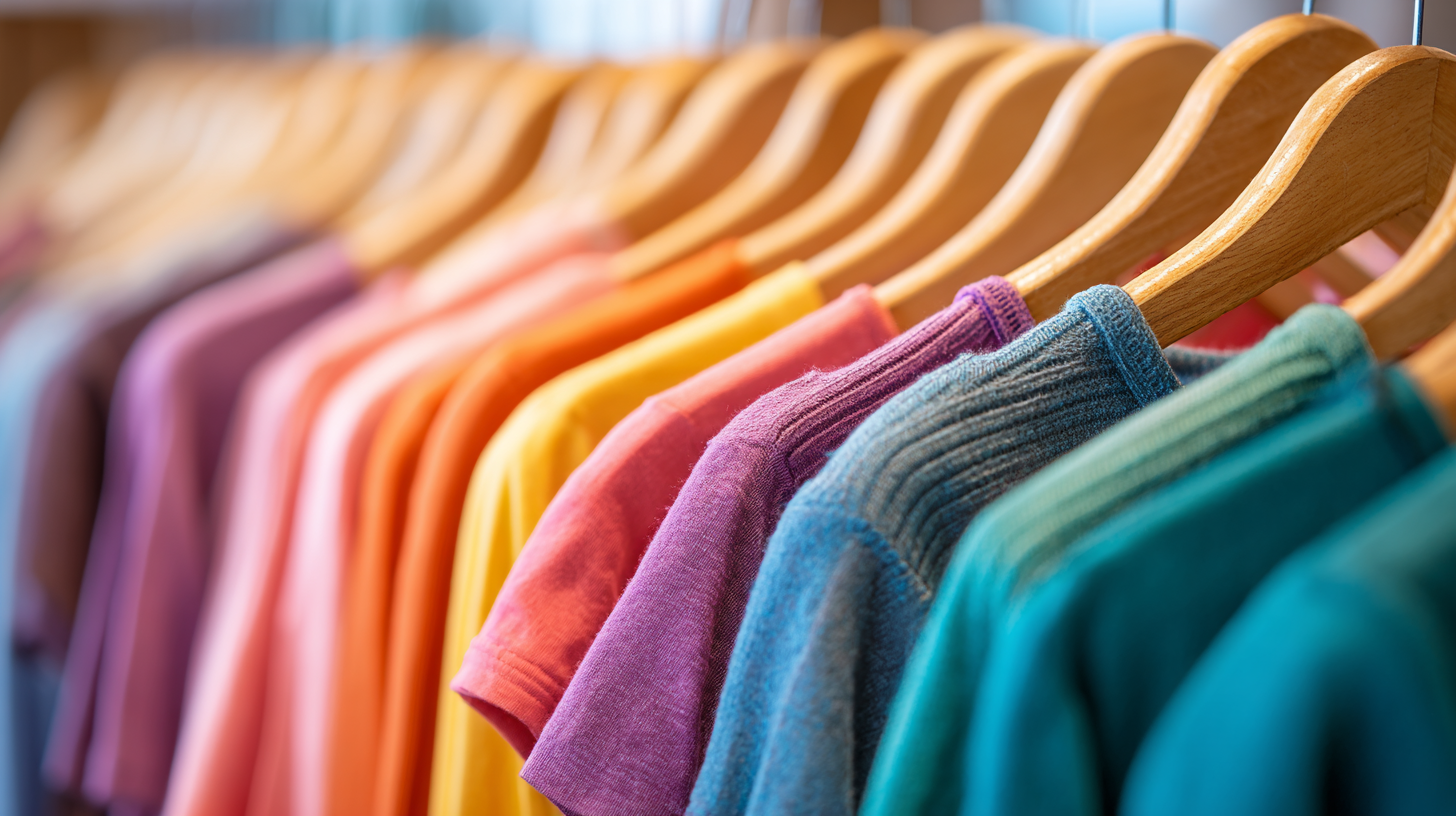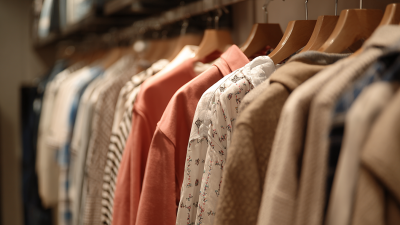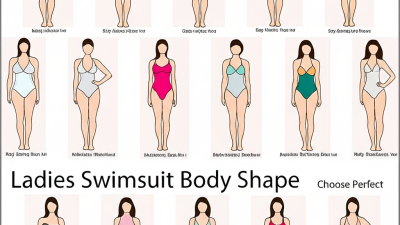Exploring Sustainable Ladies Clothing Options for a Greener Fashion Future
The fashion industry is rapidly evolving towards sustainability, and exploring sustainable ladies clothing options is essential for creating a greener future. According to a report by McKinsey & Company, the apparel sector is responsible for up to 10% of global carbon emissions, with women's fashion comprising a significant portion of this impact. Additionally, the Ellen MacArthur Foundation estimates that the equivalent of one garbage truck of textiles is landfilled or incinerated every second, highlighting the urgent need for change in ladies clothing production and consumption. As consumers increasingly prioritize environmentally friendly choices, it is crucial for designers and brands to adopt sustainable practices. This article delves into innovative materials and ethical manufacturing processes, providing a "How to" guide for making informed choices that support a more sustainable fashion landscape while appealing to the modern, eco-conscious woman.

The Importance of Sustainable Fashion in Today's World
Sustainable fashion has emerged as a critical response to the environmental challenges we face today. In a world grappling with climate change, pollution, and resource depletion, the fashion industry must shift towards more responsible practices. This movement is not merely a trend but a necessity that aligns with broader economic and social development goals. As cities like Shenzhen advance their developmental frameworks, they highlight the importance of integrating sustainability into various sectors, including fashion.
The rise of sustainable ladies clothing options reflects a growing consumer awareness about the lifecycle of garments, from production to disposal. Emphasizing eco-friendly materials and ethical manufacturing processes, this trend underscores the importance of making conscious choices. Responsible fashion brands are paving the way for a greener future, contributing to the global effort of reducing waste and minimizing the carbon footprint. Ultimately, sustainable fashion is more than just clothing; it is a pivotal aspect of creating a healthier planet for future generations.

Understanding Materials: Eco-Friendly Fabrics for Women's Clothing
As the fashion industry increasingly recognizes its responsibility toward environmental sustainability, the choice of materials has become a critical focus for creating eco-friendly women's clothing. Sustainable fabrics such as organic cotton, hemp, bamboo, and recycled polyester are gaining popularity for their minimal environmental impact. These materials not only reduce water usage and pollutant output but also enhance the longevity of garments, challenging fast fashion's throwaway culture.
Moreover, brands are innovating by utilizing deadstock materials—textiles that would otherwise go to waste. This approach not only gives new life to surplus inventory but also mitigates the environmental costs associated with new production. By prioritizing responsibly-sourced materials, women can make choices that reflect their values while supporting an industry shift toward greener practices. The evolution of fabric technology is vital in this journey, ensuring that sustainability goes hand-in-hand with style and versatility in women's fashion.
Eco-Friendly Fabrics for Women's Clothing
This chart displays the environmental impact of various eco-friendly fabrics commonly used in women's clothing. The data indicates the percentage of sustainability based on water usage, carbon footprint, and biodegradability.
Ethical Manufacturing: The Role of Fair Trade in Fashion
Ethical manufacturing is becoming an essential aspect of the fashion industry as consumers increasingly demand sustainable and socially responsible clothing options. Fair trade practices play a pivotal role in promoting these values by ensuring that workers in the fashion supply chain are compensated fairly and work under safe conditions. This framework not only prioritizes fair wages but also empowers artisans and workers from marginalized communities, giving them a voice in the production process. By supporting fair trade, brands can contribute to a more equitable economy that respects human rights.
As sustainable fashion gains momentum, the integration of fair trade principles in clothing production is vital for fostering a greener future. Brands that adopt ethical manufacturing processes not only minimize their environmental impact but also create a positive change in the lives of their workers. Such practices encourage transparency, as consumers are increasingly seeking information about how their clothing is made. By investing in fair trade, fashion labels are not just selling products; they are championing a movement that prioritizes sustainability and social justice, paving the way for a more conscious and responsible approach to fashion consumption.

Innovative Brands Leading the Way in Sustainable Ladies Wear
The fashion industry has seen a paradigm shift towards sustainability, with innovative brands at the forefront of this movement. According to a report by McKinsey & Company, the global sustainable fashion market is expected to reach $8.25 billion by 2023, growing at a significant rate as consumers become more environmentally conscious. This growth is driven by brands that prioritize eco-friendly materials and ethical production practices. Notable examples include Reformation and Amour Vert, which focus on using sustainable fabrics and transparent supply chains, setting a benchmark for sustainable ladies' clothing.
Innovative brands are not just using sustainable materials; they are also leading initiatives that promote circular fashion. A report from the Ellen MacArthur Foundation highlights the success of brands that adopt circular models, where 25% of garments can be designed for extended life cycles through recycling and resale. Companies like Eileen Fisher have successfully launched take-back programs that encourage customers to return old garments for repair or recycling. Such forward-thinking practices not only reduce waste but also resonate with consumers keen on contributing to a greener fashion future. As these brands continue to innovate, the landscape of ladies' clothing is becoming not only stylish but also significantly more sustainable.
Consumer Choices: Empowering Women to Make Greener Fashion Decisions
As the conversation around sustainability in fashion continues to gain momentum, empowering women to make greener fashion decisions has never been more crucial. According to a report by McKinsey & Company, the fashion industry accounts for approximately 8-10% of global carbon emissions, highlighting the significant impact consumer choices can have on the environment. Women, who make up a substantial portion of the fashion market, are increasingly seeking sustainable alternatives that align with their values. Brands such as Reformation and Eileen Fisher are leading the charge by offering stylish, eco-friendly clothing that emphasizes ethical production and transparency.
In addition to choosing sustainable brands, women can also embrace second-hand shopping as a powerful means to reduce fashion waste. The ThredUp 2022 Report reveals that resale opportunities are projected to reach $77 billion by 2025, showcasing a growing consumer shift towards circular fashion. This paradigm shift allows women to not only refresh their wardrobes sustainably but also to extend the lifecycle of existing garments. By prioritizing sustainable practices in their purchasing decisions, women have the potential to drive the fashion industry toward a more eco-conscious and responsible future.
Exploring Sustainable Ladies Clothing Options for a Greener Fashion Future
| Clothing Type | Material | Sustainability Rating | Price Range (USD) | Consumer Choice (%) |
|---|---|---|---|---|
| Dresses | Organic Cotton | High | 50-150 | 65% |
| T-Shirts | Recycled Polyester | Medium | 20-80 | 55% |
| Pants | Hemp | High | 40-120 | 70% |
| Activewear | Bamboo Fibers | High | 30-90 | 60% |
| Outerwear | Recycled Materials | Medium | 70-200 | 50% |
Related Posts
-

Exploring Sustainable Fashion: The Rise of Eco-Friendly Clothing Stores
-

5 Essential Features to Look for in the Best Ladies Gym Wear for Optimal Performance
-

Essential Checklist for Choosing the Perfect Ladies Gym Wear for Every Workout
-

Unleashing Style: How to Rock the Leather Shirt Dress for Any Occasion
-

Challenges Faced by Clothing Stores in Adapting to Consumer Trends
-

How to Choose the Perfect Ladies Swimsuit for Your Body Shape

